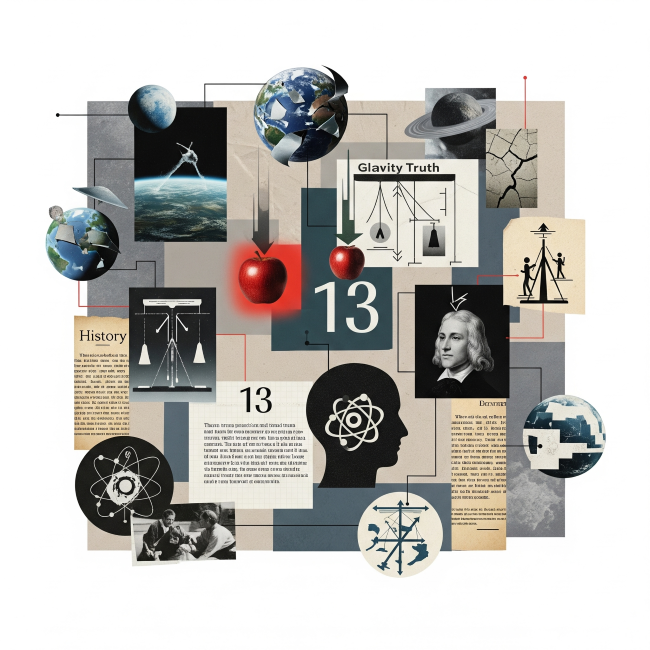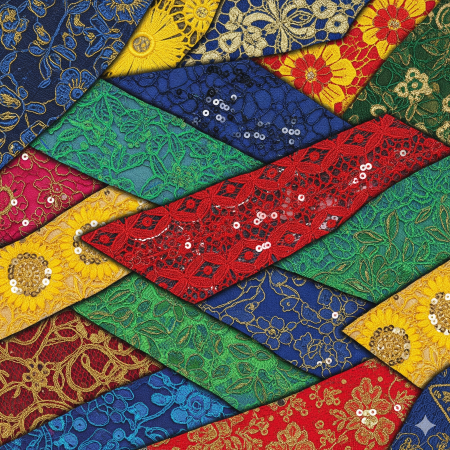The Libraries We Lost: How Colonisation Erased Africa’s Ancient Archives
.jpg)
AUTHOR: Adedoyin Oluwadarasimi of Zeal News Africa
Forgotten Pages: Africa’s Hidden Literary Legacy
Before the arrival of colonizers with their ships, guns, and Bibles, Africa was rich in intellectual traditions, recorded histories, philosophies, science, and mathematics.
Contrary to the colonial narrative that portrayed Africa as a blank slate or solely reliant on oral traditions, the continent boasted vibrant centers of literacy, scholarship, and archival preservation.
From Ethiopia to Mali, and Egypt to Sudan, libraries and manuscripts were integral to the cultural heartbeat of the people, until they were violently suppressed or looted by colonizers. Today, we continue to grapple with the ramifications of that erasure.
The Myth of the Oral-Only Tradition
Colonial narratives systematically depicted Africa as a continent devoid of written knowledge, a space where information was solely conveyed through songs and storytelling. While oral traditions indeed hold significant value, this representation neglects a crucial reality: Africans were prolific writers.
InTimbuktu, Mali, over 700,000 ancient manuscripts in Arabic and indigenous African languages such as Songhai and Tamashek were meticulously preserved within family libraries for centuries. These texts encompassed subjects such as astronomy, medicine, mathematics, law, theology, trade, and women's rights.
According toUNESCO, the Timbuktu manuscripts some dating back to the 13th century exemplify a written heritage in Africa that rivals any other civilization.
The First Scourge: Colonial Dispossession
European powers particularly Britain, France, Portugal, and Belgium justified their colonial rule by characterizing Africa as devoid of civilization. This provided ideological justification for the seizure, destruction, or removal of innumerable cultural artifacts, including libraries.
When the British invadedBenin in 1897, they confiscated over 3,000 artifacts, including ivory tusks, bronze plaques, and documents, many of which remain housed in theBritish Museum.
Manuscripts and palm-leaf texts from Ethiopia, Congo, Nigeria, and Ghana were either destroyed in missionary fires or transported to European libraries. French colonialists in West Africa enacted a policy of assimilation, which included the incineration of native documents deemed “pagan.”
History
Rewind the Stories that Made Africa, Africa
A Journey Through Time, Narrated with Insight.
Educational institutions were mandated to teach the French language and values, effectively displacing indigenous educational systems.
Poignant Examples of Erasure
Timbuktu’s Libraries: In 2012, Islamist militants captured parts of northern Mali and set ablaze hundreds of irreplaceable manuscripts. Although local heroes undertook significant efforts to save many, the world only then began to comprehend the extent of the loss.
Ethiopia’s Maqdala Treasures: Following the British invasion of Maqdala in 1868, over 500 manuscripts, religious scrolls, and books in Ge’ez were plundered and are currently held in British and French institutions.
The Library of Alexandria: Though located in Egypt and destroyed long before the colonial era, its inclusion is symbolic. As part of Africa, its destruction by successive empires signifies an early form of historical silencing regarding Africa's contributions to global knowledge.
A preserved manuscript from Timbuktu, Wikimedia Commons
Colonial Education as Cultural Amnesia
Missionary schools, which proliferated during the colonial period, did more than introduce Western educational paradigms. They instructed African students to memorize British or French history while neglecting African intellectual contributions.
Students were educated about Shakespeare, Napoleon, and Plato, but not about Nana Asma’u, Ahmed Baba, or the scholars of Gao.
This educational deficiency spawned generations of Africans who felt disconnected from their historical literary traditions, leading many to erroneously believe that Africa's history commenced with colonization a psychological triumph for the colonizers.
Resistance and Recovery
Despite centuries of theft and devastation, initiatives to preserve and reclaim Africa’s literary heritage are underway:
Timbuktu’s Manuscript Rescue: In 2013,Dr. Abdel Kader Haidara led a team that smuggled over 350,000 manuscripts from conflict zones in northern Mali using taxis, carts, and boats. These manuscripts are now secured in undisclosed locations and digital repositories.
Digitization Projects: Organizations such as theHill Museum & Manuscript Library (HMML), theEndangered Archives Programme (EAP) at the British Library, and theAfrican Memory Project collaborate with African scholars to digitize and repatriate African manuscripts.
Museum Demands and Activism: Young African activists are leading the charge for repatriation. Social media campaigns like#BringBackOurBooks echo calls for the return of stolen artifacts.
Activists demand the return of looted African artifacts. Wikimedia Commons
Why It Matters Today
Africa’s ancient libraries hold significance beyond mere historical interest; they represent keys to identity, innovation, and restoration. They challenge the fallacy that Africa lacked history, science, or intellectual contributions to the world.
They affirm that Africa possessed systems of knowledge comparable to and in some cases more advanced than those in Europe. In the contemporary knowledge economy, reclaiming and reintegrating these legacies into education can empower a new generation of Africans to embrace their heritage and origins.
These archives also house indigenous knowledge that could provide solutions to modern challenges ranging from agriculture to climate change to community justice. TheUNESCO World Heritage Centre has recognized the cultural importance of these materials, stating:
“Preserving Africa’s written heritage is a matter of global importance.”
What Can Be Done?
Repatriation Now: Western museums and institutions must return looted manuscripts and materials, not merely display them.
Digital Archives: African governments and technology communities should invest in digitization initiatives, allowing young individuals access to indigenous knowledge via smartphones and computers.
Curriculum Inclusion: African educational systems must revise their history and literature curricula to reflect local intellectual traditions, teaching about Timbuktu alongside Plato.
Funding for Local Archives: Libraries in Africa urgently require funding, infrastructure, and global partnerships to preserve the remaining materials.
Conclusion
The libraries we lost were not merely structures or books; they embodied blueprints for how Africans interpreted the world, governed societies, and envisioned the divine. Colonization may have attempted to eradicate them, but the essence of these archives endures.
History
Rewind the Stories that Made Africa, Africa
A Journey Through Time, Narrated with Insight.
Through remembrance, digitization, and the return of materials, Africa can reconnect with its plundered libraries and restore its rightful position in global intellectual history.
The silent shelves of looted libraries may yet resonate once more, if we choose to listen, recover, and reclaim.
AUTHOR: Adedoyin Oluwadarasimi of Zeal News Africa
You may also like...
When Sacred Calendars Align: What a Rare Religious Overlap Can Teach Us

As Lent, Ramadan, and the Lunar calendar converge in February 2026, this short piece explores religious tolerance, commu...
Arsenal Under Fire: Arteta Defiantly Rejects 'Bottlers' Label Amid Title Race Nerves!

Mikel Arteta vehemently denies accusations of Arsenal being "bottlers" following a stumble against Wolves, which handed ...
Sensational Transfer Buzz: Casemiro Linked with Messi or Ronaldo Reunion Post-Man Utd Exit!

The latest transfer window sees major shifts as Manchester United's Casemiro draws interest from Inter Miami and Al Nass...
WBD Deal Heats Up: Netflix Co-CEO Fights for Takeover Amid DOJ Approval Claims!

Netflix co-CEO Ted Sarandos is vigorously advocating for the company's $83 billion acquisition of Warner Bros. Discovery...
KPop Demon Hunters' Stars and Songwriters Celebrate Lunar New Year Success!

Brooks Brothers and Gold House celebrated Lunar New Year with a celebrity-filled dinner in Beverly Hills, featuring rema...
Life-Saving Breakthrough: New US-Backed HIV Injection to Reach Thousands in Zimbabwe

The United States is backing a new twice-yearly HIV prevention injection, lenacapavir (LEN), for 271,000 people in Zimba...
OpenAI's Moral Crossroads: Nearly Tipped Off Police About School Shooter Threat Months Ago
ChatGPT-maker OpenAI disclosed it had identified Jesse Van Rootselaar's account for violent activities last year, prior ...
MTN Nigeria's Market Soars: Stock Hits Record High Post $6.2B Deal

MTN Nigeria's shares surged to a record high following MTN Group's $6.2 billion acquisition of IHS Towers. This strategi...






